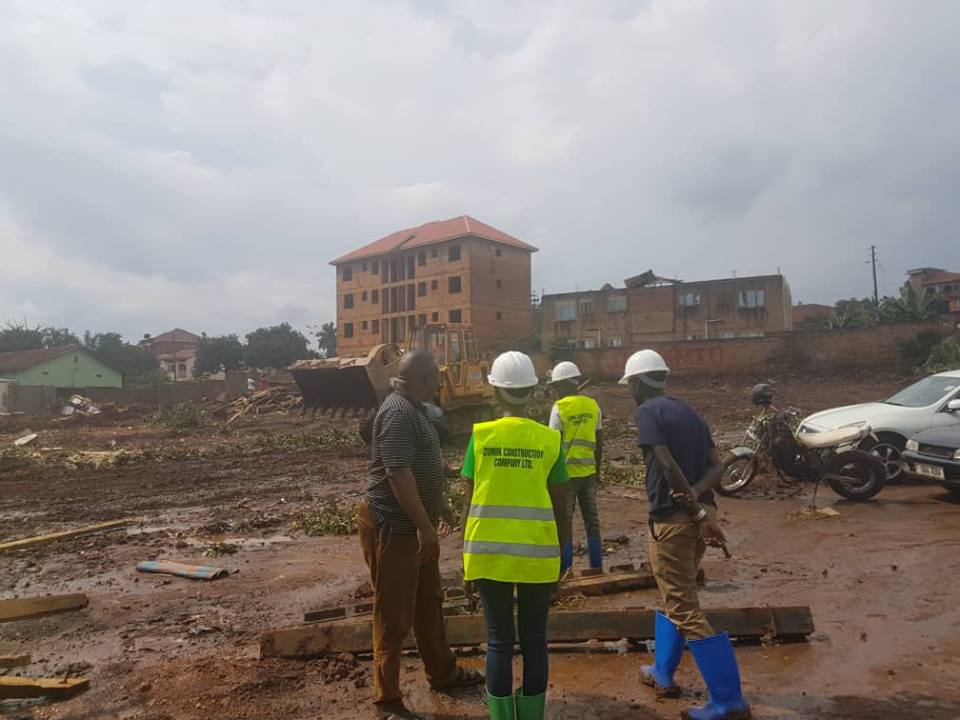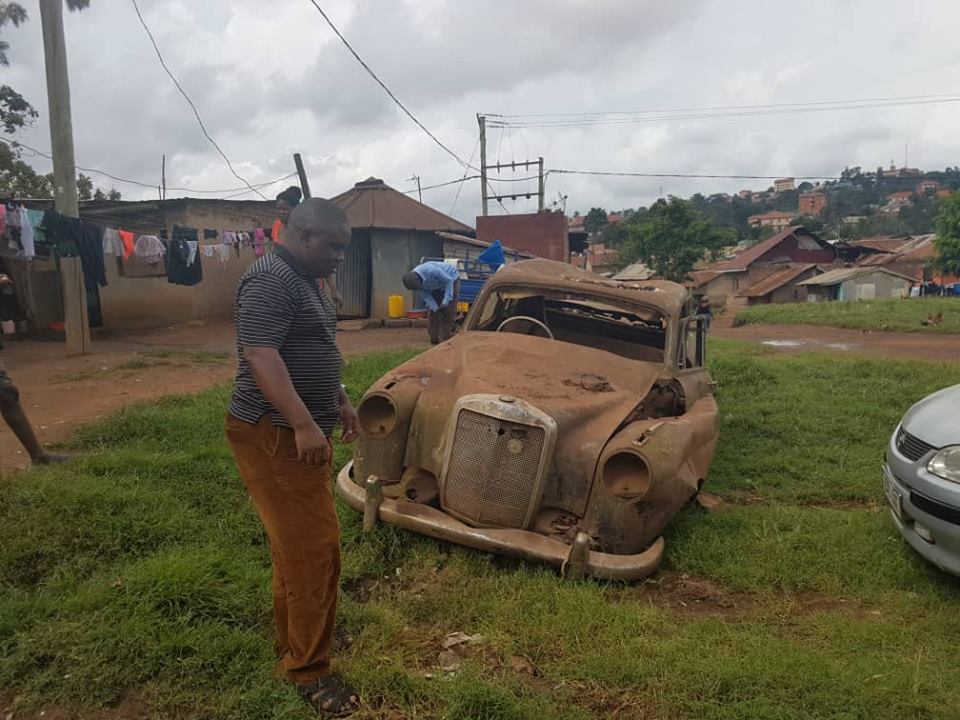
The home of former first Prime Minster of Uganda Benandicto Kiwanuka who doubled as Democratic Party founder is no more.
This incident follows the property wrangle that led to the demolition of the Kiwanuka’s estate located in Nalukolongo, Lubaga Division.
It is tragic that this great home which meant a lot to the family of the Late Benedicto Kiwanuka but also the Democratic Party which he led as the 3rd President is no more; especially at a time when his remains can’t be located for a decent burial! Its further chastening because this is where the remains of Ben’s wife Maxensia Zalwango Kiwanuka are also kept.
One reaching at the scene, Kampla City Lord Mayor Elias Lukwago decried the incident and manged to secured Kiwanuka’s official vehicle as Uganda’s first Chief Minister which is currently being kept at Wakaliga police post following the demolition of his monumental home at Ben Kiwanuka Zone Lubaga by one Mutabingwa.
He says this car is a very big asset for Uganda and he will ensure it merits a luxury storage in the Uganda Museum.

Who is Ben Kiwanuka?
Benedicto Kagimu Mugumba Kiwanuka (8 May 1922 – 22 September 1972) was the first prime minister of Uganda, a leader of the Democratic Party, and one of the persons that led the country in the transition between colonial British rule and independence. He was murdered by Idi Amin’s regime in 1972.
A member of the Baganda ethnic group, Kiwanuka was born in Kisabwa to Kaketo-Namugera (father) and was a member of the Roman Catholic Church.
He was admitted to the bar association at Gray’s Inn in February 1956.
As a result of the September 1961 Uganda Constitutional Conference held in London, Uganda achieved internal self-government on 1 March 1962. Kiwanuka became Uganda’s first prime minister in the new National Assembly.
New elections, however, were held in April 1962, with Kiwanuka’s party losing to the alliance of Milton Obote’s Uganda People’s Congress and the Buganda traditionalist party, Kabaka Yekka. In addition, Kiwanuka’s Catholicism made him unpopular with his fellow Buganda, a mainly Protestant people. Uganda achieved independence on 9 October 1962, with Obote as the first prime minister of a fully independent Uganda.
Kiwanuka was imprisoned in 1969 by Obote’s government, but was one of 55 political detainees released by Idi Amin immediately after the coup that brought Amin to power. Amin appointed him as chief justice of Uganda on 27 June 1971.
Kiwanuka soon came into confrontation with Amin’s disregard for the rule of law. In the immediate aftermath of Obote’s abortive counter coup of 1972, Kiwanuka was arrested at gunpoint by Amin’s men as he presided over a session of the High Court. As well as countermanding from the bench some of Amin’s more draconian orders, Kiwanuka had also secretly agreed to support Obote’s return to power, with the proviso that Kiwanuka would be involved in constitutional reform.
Kiwanuka was killed by Amin’s forces on 22 September at Makindye Military Prison in a prolonged execution which, according to eyewitnesses, involved Kiwanuka ears, nose, lips, and arms being severed, a disembowelling, and castration before he was finally immolated.
Kiwanuka’s death was not acknowledged as an execution, with Amin instead publicly blaming it on Obote’s supporters and even launching a police investigation. Kiwanuka’s killing was the first of a series directed against leading figures in the Baganda and Ankole tribes, aimed at curbing their power.
Kiwanuka’s grandson, Mathias Kiwanuka, played defensive end for Boston College’s American football team from 2001 to 2005 and was the New York Giants’ first round pick in the 2006 NFL Draft.
